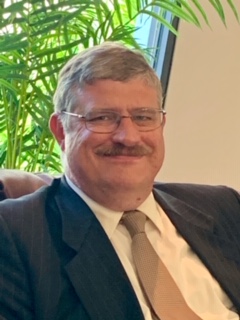The place of torture in a democracy is in the news again. “What if” we decide it is an acceptable practice in the war against terror? This near-future science fiction story by Art of Autism contributor Claudia Casser explores one vision of what might hide under the bed.
By Claudia Casser
“You don’t have to take the case.” Avi leaned over my desk, overflowing my client chair, avuncular bear in a pinstripe suit. “I wouldn’t force anyone to take a House of Soldier case, much less this one.”
I frowned. “Do you want the LCLU to take the case, or not?” The League Civil Liberties Union was counsel of last resort for unpopular clients. As head of Special Matters, the very most unpopular clients were mine.
“No. But the Hill does. Still, it doesn’t have to be you personally…”
I finally got it. Me, a Scholarship Girl.
“It’s my job,” I said.
My boss grimaced, but nodded. Lumbering to his feet, he said, “If you want to bounce anything off me–.”
“I know where to find you.”
Before Avi’s butt disappeared down the hallway, my malleus implant buzzed. Clicking acceptance, I said, “LCLU, Cassie Mitsos speaking.”
The voice in my ear was firm but very young. “Lieutenant Budd here, Ma’am. I understand you’re handling my case?”
He didn’t sound old enough to be a professional torturer. He didn’t sound older than my son would be.
More pertinent, how could he know I was taking his case? “How—”
“Mr. Bradley Lanister, Ma’am. He said you’d never foist a hot potato like this on someone else.”
Brad. Of course. Lots of unresolved issues there; but none to blame on my new client.
“Subject to the results of our first interview, Mr. Lanister was correct.” Brad knew I couldn’t resist the professional—or personal—challenge. “However, I haven’t yet reviewed your file, so I’m not prepared to discuss anything of substance with you now. Unless you’re under some kind of duress?”
“No, Ma’am, nothing like that.” He hesitated. “I just want to make sure my case isn’t shuffled under the rug.”
A not-unreasonable fear. Tapping through the file as we talked, I tried to remember any other actions the House of Soldiers or one of its members had litigated as plaintiffs. Soldiers showed up in court records as defendants or respondents from time to time, civil or criminal matters quickly settled, but never as plaintiffs or petitioners. Keeping out of the public view was their stock in trade.
“Ah, where are you being held? Are you safe there?”
“Quite safe, Ma’am. I’m confined to my regular quarters in West Virginia, protected by House security.” He sounded like he was trying to reassure me.
This was a bit awkward. “No suicide watch?” Lieutenant Budd had petitioned to be executed rather than mind-wiped. If he really meant it, he could just… help himself.
His tone quivered with indignation. “No, Ma’am. I gave my word.”
Of course. Suicide was illegal and Soldiers were a bunch of Boy Scouts. There was only one reason a Soldier would violate the law.
When Allah’s Rage took out Seattle in 2019, proving how small a bomb could cause Mount St. Helens to imitate Krakatoa, world sentiment demanded drastic action. The Righteous Six precursors to the League set up an international antiterrorist unit mandated to do whatever it might take to preserve the human race.
There was no prior restraint on the unit’s methods, in theory or practice. The House of Soldiers were licensed to commit any atrocity within their strictly-defined sphere of operations, without proof of necessity or even efficacy. Including public relations discipline of their troops.
Only a handful of politicians protested, including Theo van Boven, U.N. special Rapporteur on Human Rights, celebrated author of the the United Nations’ dictum that “the absolute nature of the prohibition of torture and other forms of ill-treatment means that no exceptional circumstances whatsoever, whether a state of war or other public emergency, may be invoked as justification for torture”. An Italian mob lynched him.
The brain-trust that designed the details of the international program was, rightfully, almost as paranoid about their monster as they were about the terrorists it was designed to combat. To guard against the possibility of Soldiers going rogue or being suborned to missions other than WMD counterterrorism, they incorporated as many safeguards as the technology of their decade permitted. The prime safeguard was to staff the organization with heroic “volunteers” brainwashed to do their duty according to rules as utopian as Asimov’s Three Laws of Robotics. Or the Boy Scout Oath.
Unfortunately, the conditioning only worked if you started when the operatives were less than six years old. Various “democracies” found ways to encourage mothers to volunteer their children. In the USA, they baited teenagers with full scholarships: the astronomical cost of higher education tempted many an otherwise intelligent young woman to bear a baby for the State.
“So, are you able to come to my office for an interview?”
“No, Ma’am. My command will send you a pass to come here.”
No real surprise. The House of Soldiers policed themselves and were unlikely to risk another jurisdiction grabbing their boy. So I won another marvelous, expense-paid, high-radiation LCLU junket.
I checked my dosimeter patch; enough trips through security scans at courthouses, prisons, refugee camps, survivalist compounds and mass transit, and it was a good thing I didn’t plan to get pregnant again. Regardless of Brad’s blandishments.
As I brooded, the torturer got anxious. “Can you come soon?”
I made arrangements to foist off routine court appearances scheduled for the next couple of days onto a genuinely thrilled junior counsel. Then I cycled home, packed an overnight bag, threw a couple of extra batteries for my Epad into my purse, and watched rain forest parrot documentaries with my Enhanced® pigeon, Roo. Cuddling with Roo to watch his favorite vids was my way of apologizing for leaving him alone in the house while I traveled. In the old days, I would have left Roo with Brad.
In the chill early dark of the next morning, I braved the security lines and scans at Dulles hub. Few people were flying into Charleston, West Virginia this day before St. Patrick’s Day. Despite the turbulence, I reread the file I skimmed right after the Soldier called.
It wasn’t pleasant. To read to the end, I had to call upon every bit of professional distance and discipline I had learned during sixteen years of practice. I couldn’t make myself open the appendices showing the interrogation itself or the deposition of the mother. I convinced myself they weren’t relevant.
The flight landed at quaint, historical Yeager Airport, where the only equipment up to date was the security scanner. A gray-uniformed Soldier-sergeant met me with a hummer on the passenger side of the security fence.
The Soldier grabbed my overnight bag before I could grab back and opened the hummer door, murmuring “Military courtesy, Ma’am,” as if to forestall my reporting him for sex discrimination and/or conversion. As if I didn’t know he just wanted to scan my luggage himself. I stared him down when he reached for the purse and Epad hanging around my neck.
It was a long ride through old coal country reforested in young pines. The security gate to the House of Soldiers facility was invisible: all I noticed was a buzz in the floor and roof and sidewalls of the car as we passed into a narrow defile cut through mountain rock. We emerged onto a small grassy plateau surrounded by mountain tops. The driveway curved under the portico of a three story white wood building that looked like the hotel outside the gates of West Point, fresh-painted for Homecoming. The only car in sight, we parked right by the stairs leading to the hotel veranda.
My gray sergeant got out and opened my door. Not a hundred yards from the hotel, set right into the rock of the closest cliff, massive metal doors frowned at me. They were neither gray nor brown, but some uneasy superalloy color in between, like the entrance to an underground bunker for King Kong. Claustrophobia tightened my sinuses as I guessed where Lieutenant Budd’s quarters would be.
“If you would, Ma’am, please check into your room, have lunch, and at 1400 I’ll escort you into the secure facility.” The sergeant did not offer to give me back my overnight bag. I did not offer to give him my purse or ‘pad.
I hoped they’d just check the overnight bag for whatever, test my saliva and fingerprints from my lunch dishes to confirm I was who I was, and maybe compare current and past walk-through brain-scans to check for tampering. I hoped they wouldn’t get invasive. Although Brad did get his colon cancer diagnosed early when he was x-rayed and y-rayed by security at the Pentagon.
Adjusting my purse over my shoulder, I climbed the white-painted cement steps to the veranda, pushed through the glass lobby doors. The desk clerk, bellboy (who insisted on taking my coat “to clean a stain”), and the maitre d in the deserted, walnut-paneled restaurant, were all male. My room, on the other hand, was overboard frilly, sort of aggressive retro girl-next-door. The bed was large. I guessed that, on weekends, this really was like the hotel outside the gates of West Point.
At 1339, front desk time, I walked out of the lobby onto the veranda. Fifteen seconds later, the sergeant exited. “You’re cleared, Ma’am,” he said, and offered his arm. I found myself taking it as he marched me down the stairs and across the lawn to the King Kong doors into the mountain.
There was a human-sized door beside them. The sergeant palmed it open and waved me forward. Taking a deep breath of mountain air, I stepped into the House of Soldiers.
Or its airlock. The door slid shut behind us and we were trapped in a metal closet so small that I could smell the sergeant’s aftershave. To avoid panicking, I decided to pretend we were in an elevator. God, I hoped that we weren’t really in an elevator, going down.
Before my imagination could embroider that thought, the wall in front of us slid aside, revealing a boy in uniform standing at attention in a brightly lit stone tunnel. He looked about twelve, not even close to shaving. A bona fide fledgling Soldier. I couldn’t stop staring.
My sergeant took me by the elbow and we clacked across a pristine platform to a shiny replica of a PATH subway train car. “The Lieutenant will meet you at his station,” he said. He opened his mouth to say more, then didn’t.
I stepped into a spick and span car. Spotless, oval-windowed train doors closed between us.
As I settled onto the familiar contoured orange bench seats, the car lurched into motion. Alone, I sped through stygian blackness. I imagined sulphurous fumes and rotting corpses filling the tunnel. Inside my immaculate chariot, aside from a slight exhalation of plastic and chloride cleaner, there was no smell at all.
To distract myself, I pulled my Epad out of my purse and checked the time. The facility was huge, or I was going in circles.
After twenty minutes, the car finally slowed and stopped at a lighted platform. The doors hissed open and my heels clattered on bright white tiles.
There was nowhere to go but up some stairs. They intersected a white-walled, green-carpeted hallway lit with soft yellow panels. When I reached the top of the stairs, a figure appeared around a bend in the corridor.
He was clean-cut and fresh-faced, except for the hollows under his eyes. No more than twenty, young for a First Lieutenant. Very young for a Lead Interrogator.
Unless they had altered him to optimize his “interrogation face” or to anonymize or tribalize him for undercover work, he came from olive-complected Mediterranean stock like me. His dark curly hair and liquid eyes adorned hoplites on a thousand tapestries of war.
“Ms. Mitsos, Ma’am.” He held out his hand for me to shake.
I looked at it. It was clean and the short nails were clean. No visible dirt or blood. He was my client. And he saved thousands of lives. When he chose the means, he was only following orders.
I couldn’t make myself touch him.
After a moment, his hand dropped to his side.
“Lieutenant Budd.” At least I could make my tone professionally pleasant. “Where can we talk?”
“The most private place is the office in my suite.” A pause. “Unless you would be more comfortable in the rec area?”
In a place where I wouldn’t be alone with someone who chopped pieces off an uncomprehending four year old to make his father talk. But I wasn’t afraid he would do anything to me. “Your suite would be fine,” I said.
He led me along the broad carpeted corridor, filled with fresh air from somewhere and broken at intervals by wood doors and watercolor paintings and side-tables topped with plants or flowers. I was glad that the Soldiers’ quarters looked nothing like a barracks, nothing like the dreams I had when I gave up my son to them. Of course, this was officers’ country, not their creche.
Each time we passed beyond a door, I heard it whisper open behind us. I started to turn to look back, but the Lieutenant muttered, “Mostly the only females we juniors see are the Liberty Girls from Amsterdam and Las Vegas. Except for missions off-base, and only the assassin squaddies go on those.”
At least it was all more discreet than visiting male clients in prison. I suppose I was happy for the Soldiers that I’d worn a skirt. A counselorly long skirt, back-slit for ease of movement. Though maybe the visual details weren’t important: one serial killer told me that, ever since the LCLU won unblocked access to the internet for prisoners, it was only the smell of women the inmates missed.
Past a few more whispering doors, we stopped at the Lieutenant’s. It was unlocked, I couldn’t see that it had a lock, I’d have to think about what that implied later, because he pushed it open for me and we were in his rooms.
In a moment I’d have to talk aloud to him about what he had done to that four-year-old, why he had filed his petition for a writ of habeas corpus, what he really wanted, whether I could get it for him. I pretended interest in his quarters to deny that moment a little longer.
The entry was a generous-sized living room with an entertainment wall, a scattering of body-cushions on deep-pile carpet, and a dorm-room refrigerator. The room was way too clean for a college age kid; they must have inspections. A floor-to-ceiling glass wall led to a balcony. We were high in the mountains, near the top of a crumbling sedimentary cliff surrounded by lower, forested hills.
To the left of the living room was a bathroom and the promised office; to the right hung a beaded curtain. I made out Wily Coyote shimmering across a doorway that must lead to the boy’s bedroom. The curtain was the only teenage bad taste in the suite. My eyes suddenly prickled with tears.
Bracing to attention, the Lieutenant waved toward his office. I shook my head. I needed air. “Let’s go out on the balcony,” I said.
“They wouldn’t bug us–”
He misunderstood, but it was a good point. Of course they would bug us. “The balcony, please.”
It was still a couple of hours before sunset. Pools of sunlight slipped between the shadows cast by pillars supporting a metal canopy. I guessed the whole structure collapsed into a massive shutter protecting the apartment in the event of attack.
The air and light and height settled my stomach. I sat on a deck chair and gestured Billy Budd to the other.
“It’s not your real name, is it?” I asked, keying my bookpad to record.
He shrugged. “It’s the name I’ve had for the last five years, since I became an Interrogator.”
At fifteen? “Did you have a choice?” I meant the job, not the name. He understood.
“There’s always a choice. I scored really high in empathy. I have a knack for discovering my subject’s weaknesses, so I can use more fear, less force. Someone has to do it, and I thought I could do it more effectively, more safely, more… humanely.” His lips twisted.
I hurried to my prepared list of questions. “On the day you performed the interrogation of Dmitri X to locate the bomb on the cruise ship Bruce Springsteen, did you consider other ways to get the information?”
Brown eyes rolled in the universal teen reaction to inutterably dumb adult questions. He omitted the “well, duh.”
“Please answer aloud.”
“Yes.”
“Please describe your interrogation plan.”
He fixed his eyes on the dark green hills below us. At first he sounded sulky, any teen called to account. “Standard emergent interrogation techniques. They told me there was reason to believe a bomb was timed to explode on an unidentified ship within too short a time for long-term interventions.”
His voice firmed to a smooth, distanced delivery I recognized. Professional. “The subject had implanted allergies to even our newest drugs. He welcomed his own pain, believing that it proved him a true martyr and won him greater blessings for an eternity in heaven for each minute of pain on earth.
“We had his known associates in custody. We wired him and metered his reactions to videos of their holding cells. Nothing registered on the machines, but there was something about the video of the boy…”
His eyes shifted from the hills to me and back. “My superiors told me to go with my gut. There were thousands of innocent civilians on that ship who were going to die. Maybe my mother.”
His mother?
“We brought the instrument to the interrogation room and restrained it close enough to the subject for him to smell its fear and blood and urine.”
I couldn’t hold my breath any longer. “The instrument?”
Without warning, the Lieutenant’s voice rose to a shout, a scream, a shriek that echoed off the hills. “What, do you think I think of him as a little boy while I’m working?”
His face worked as his voice deadened to rote recitation. “The instrument is a tool. I attend to the feelings of the subject; to the subject’s reactions to my actions. The subject is my only focus.
“The instrument’s cries rattled the subject; he started making up obvious lies. Somehow I knew that he would keep making up lies until time ran out, so I began to reduce the instrument. This produced screams and invective from the subject, until I had cut off most of the instrument’s left arm and began on the right. The subject finally identified the location of the bomb, although it was my impression that he named the Springsteen only because he thought he had held out long enough that we couldn’t disarm the bomb in time.”
Though his tone remained even, my client was panting, his face white and clammy. I said, “And you want to remember this? You don’t want to be mind-wiped?”
He jerked violently to his feet. “I want the kid to be mind-wiped, I want my death benefits to pay for the best prosthetics in the world, I don’t want the kid to remember his bastard of a father, or the pain. Or the helplessness. But I don’t want to forget.”
I almost couldn’t hear the last, he said it so softly, face buried in his hands, rubbing, grinding against his eyes.
“You don’t want to forget what you did?”
“I don’t want to forget why I did it.” He dropped back into the chair, heavily. “I don’t want to live not remembering why I did it, even if, mind-wiped, I wouldn’t know I did it.”
“Why?”
“What does it matter?”
“It might.”
He turned those limpid brown eyes to me, red now with the tears he rubbed away. The lowering sun glowed warm on his silky hair, his rigid back. “If they mind-wipe me, I won’t remember my mother,” he whispered, “and then, if I had to do it again, I might not.”
I couldn’t take his case. I could barely force myself to finish the interview. Not because he didn’t make any sense, but because maybe he did. Except his whole chain of reasoning was based on a lie.
“Billy,” I said, “look at me. You know that none of the Soldiers can actually remember their real mothers. When you were five, when you came to the House, they blocked those memories away for you.”
He leaned forward, suddenly charged with an intensity I could never have faced, shackled to a chair. “I do remember her. I’m different, my test scores are special, years ago I overheard the shrinks say they never should have taken me into the program, I was too far outside the norms to predict, and I do remember her. She smelled like sunshine in the garden, and she had long hair I used to tangle my fingers in. She smiled all the time, but once she cried and it scared me. I remember.”
His voice hardened and dark eyes darkened and he terrified me. “I am not like the cadets who make up mothers. I know they do that, but I really remember mine. And I’d rather die than lose that memory.” Then he sat back, releasing me.
“Okay,” I said, getting up from my chair. I needed to get away from the Lieutenant. “Why don’t we recess for now. How do I get back to my hotel?”
The energy drained from his face and his shoulders slumped. “Sorry, Ma’am,” he said hoarsely. “I’ll show you back to the train.”
We walked down the hall, past the whispering doors, down the stairs, to the waiting subway car. As I escaped into the train, he called mulishly, sounding almost like a normal adolescent, “I have a right to die. I did my duty, they have to do theirs. None of this mind-wipe crap. They have to execute me!”
The door swished closed and I fell onto an orange plastic seat. When the car moved far enough my client couldn’t see, I wrapped my arms around my head.
***
“You bastard,” I shouted at Brad as soon as our phones connected. I hope his implant rang so loud it deafened him.
“Cassie, this could be your chance to work off your guilt at the source. Then you can ditch the LCLU and come to work with me.”
“Fuck my guilt and fuck you! How did you find out about this anyhow? How could you encourage that deluded little boy!”
“Don’t you mean deluded little monster?”
“We’re bigger monsters. We send them to the Soldiers as children, we twist them until they’ll do anything to save our asses, then we punish them for stepping over a line we make damn sure they can’t even see!”
“Speak for yourself, Cassie. I wasn’t a Scholarship Girl. I didn’t bear a baby for the State, take the money, and moan about it for fifteen years!”
“You’re worse. You’re in bed with the politicians who fund the House. You believe in what they do!”
There was a pause while he breathed heavily and I cried little, wrenching sobs.
“So I do. Turn on the video, Cassie. I want to see your face.”
I propped my Epad on the frilly pink bed and clicked the camera. Brad’s was already on. He was in his office, collar unbuttoned and tie pulled down, shirtsleeves rolled up unevenly, fine blond hairs frizzing his forearms. He looked tired. He looked sad. He looked sexy. Dark, starless sky showed through his windows.
“It’s a stupid reason not to have another child, Cassie. Maybe it was a mistake, maybe you shouldn’t have been so self-centered at eighteen, but maybe your kid saved the world. We’ll never know.”
I shrugged and raked both hands through my brown, curly hair. “No. We’ll never know. You look tired.”
He quirked his lips. Then, “What about this Lieutenant Budd? By the way, what sadistic son of a bitch gave him that name?”
I had to smile back. A million years ago, Brad and I took the same literature classes.
Sniffling, I wiped my nose. “I’ll hand him off to someone else. Maybe Avi will do it himself. I can’t be objective.”
“Avi isn’t who you think he is. You, now, you believe your client has rights, whoever he is. How objective do you need to be to get a judge to order the execution of a torturer?”
Point. But I couldn’t get involved. Unless there was no one else who could do the kid justice. “I’ll think about it,” I said. I leaned forward to cut the visual, then stopped. “Hey Brad.” He lifted his eyebrows. “Roo might like a visit from you. He’s all alone in the house tonight.”
“Sure,” he said. “I’d like to see the old bird. Maybe we can have a beer together. God knows you never let him have a sip.” Then, straight-faced, he cut the connection.
I waved my hands helplessly in the air and went to take a shower.
When I stepped back into the bedroom, wet hair wrapped in a turban and the rest of me steaming inside a hotel bathrobe, a gray-uniformed man was sitting at the little writing desk under the cherub-framed mirror. He was broad, long-legged, and had eagles on his collar.
“Sorry to intrude.” He tented his fingers together as if to stop them from doing something less civilized. “I’m running between fires, but I didn’t want you to leave without personally asking you to take the case.”
“Colonel…?”
“Watkins, sorry, Colonel David Watkins. I’m Billy’s commanding officer.”
“Well, Colonel,” I said, “get out of my bedroom.”
“Will you meet me in the coffee room downstairs?”
He had hutzpah, I’d give him that. And I had told Brad I would think about Billy—Lieutenant Budd. I had to be fair. “Fifteen minutes.” I locked the bathroom door behind me.
The coffee room was just the far side of the walnut-paneled restaurant, divided from the main dining room by a big, two-faced yellow brick fireplace. The Colonel poured me a cup of coffee, offered me a crisp brown-edged wafer from a china plate, and placed his hands flat on the white tablecloth. “Please,” he said.
I crunched the wafer—Belgian, I was sure of it—took a sip of coffee, took another cookie from the plate, and said, “That’s it?”
He sat very straight in his chair, as if he couldn’t remember how to slouch after so many years of military discipline. “Yes. We cheat them of so many choices. We rig the game and then blame them for losing it, even when the civilians still win. We even make the officers blame themselves.”
“He should blame himself. You didn’t take his hands and press them down on the bolt cutters. You didn’t even threaten to cut off his fingers.”
“No, we just told him he was the only one who could save two thousand innocent men, women and children from imminent death. Innocent people who could be his mama, the ideal mother he believes he can remember.”
I closed my hand too tightly around my coffee cup. “There had to be another way.”
“Maybe there was, maybe there wasn’t. Did your file mention that we drugged the Lieutenant? He told us before he started he knew hurting the son would make the father talk. But he always insisted on trying less extreme methods first. So we put testosterone and a nor-epinephrine suppressant in his breakfast cereal, to help him get the job done faster.”
“You-?”
“Billy might have waited too long to maim the son. So we lowered his inhibitions.”
“They should mind-wipe you.”
“Yes.”
Read Part II of the short story House of Soldiers here.
***

Claudia Casser retired early from antitrust law to fledge her nerdy children on a working horse farm and write speculative fiction. From people to horses to parrots, none of the farm’s denizens could ever be classified as neurotypical. More of Claudia’s stories are available on www.ethicalantics.com









Amazing and devastating!!!!
Thanks! I cried quarts when I wrote it.
Beautiful and potent.